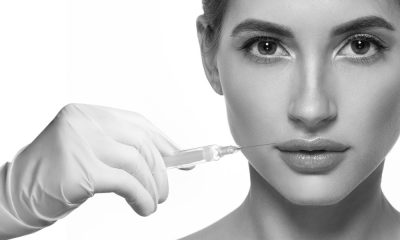A nose job or rhinoplasty can help men and women refine their nasal appearance, improve their profile, and alleviate breathing difficulties.
With aesthetic and functional benefits, it’s not surprising that rhinoplasty is a very popular plastic surgery procedure.
If you are concerned about the size or shape of your nose, here’s everything you need to know, from consultation to recovery, to prepare for a rhinoplasty.
Select a board-certified plastic surgeon that specializes in rhinoplasty
Rhinoplasty is one of the most difficult cosmetic procedures to perform, and it requires extensive experience and skill for an excellent outcome. Therefore, it’s crucial that patients research and seek a board-certified plastic surgeon that specializes in nose jobs and/or facial surgery.
The Initial Consultation
During the initial consultation, patients will meet with a plastic surgeon and express their aesthetic and functional reasons for wanting a nose job. The provider will then examine the exterior and interior of the nose and inquire about any breathing difficulties.
Additionally, many surgeons will photograph the nose and face and use imaging to demonstrate the ways in which they can modify nasal size and shape. Patients will also have the opportunity to ask questions, address concerns, and view before and after photos of the provider’s work.
Who’s a Good Candidate for a Nose Job?
Healthy men and women who are at least 15 years of age, with fully developed noses, may be considered as candidates for rhinoplasty.
These individuals often have breathing difficulties and aesthetic concerns that may include: A hump on the nasal bridge, width of the nose, asymmetry, prominent or drooping tip, and irregularities from trauma or injury.
Plastic surgeons often evaluate the patient’s emotional maturity and rule out body dysmorphic disorder prior to recommending a rhinoplasty.
Preparing for a Rhinoplasty
Four weeks before surgery, patients should discontinue smoking and nicotine products, which can compromise blood flow and healing. Application of arnica pre-operatively can also help reduce associated bruising.
Additionally, avoidance of caffeine, alcohol, aspirin, ibuprofen, and certain supplements is recommended prior to a rhinoplasty.
What to Expect From the Procedure?
Rhinoplasty is performed under general anesthesia or local anesthesia with sedation in a surgical suite or hospital.
Prior to surgery, your plastic surgeon will develop a treatment plan and decide whether he/she will take a closed or open approach to your nose job.
For an open rhinoplasty, internal and external incisions are made, and then the nose is undraped to allow access for more significant adjustments to appearance and function. This technique is always used when making revisions to a previous surgery.
Comparatively, a closed rhinoplasty requires only an internal incision and is usually done when subtle changes to the nose are desired.
Rhinoplasty Risks
In the hands of an experienced and skilled plastic surgeon, rhinoplasty is a very safe procedure. However, like all surgeries, it does carry some risks including: Bleeding, infection, and problems related to anesthesia.
The most common complication is a poor surgical outcome with undesirable aesthetic results or worsening or lack of improvement in the patient’s breathing.
What Does Recovery From a Nose Job Involve?
After surgery, patients must wear a nasal cast for seven days, and it will be taken off at their first follow-up appointment. Sutures placed during the procedure may dissolve on their own and/or require removal by a plastic surgeon.
Individuals may also experience bruising, swelling, nasal discharge, and discomfort post-procedure. Arnica can help limit bruising and sleeping upright reduces swelling.
Lastly, it’s important to manage expectations, as it can take one-to-three years for residual swelling to subside and to note final rhinoplasty results.
Cost
Considering geographic location and surgeon expertise, cost for a rhinoplasty can be $6,000-$15,000.
To learn more about rhinoplasty, please call our office today to schedule a consultation.


 Women's Health8 years ago
Women's Health8 years ago
 Dermal Fillers8 years ago
Dermal Fillers8 years ago
 Botox4 years ago
Botox4 years ago
 PRP5 years ago
PRP5 years ago
 CoolSculpting8 years ago
CoolSculpting8 years ago
 Body Contouring5 years ago
Body Contouring5 years ago
 Botox8 years ago
Botox8 years ago
 Body Contouring4 years ago
Body Contouring4 years ago


























